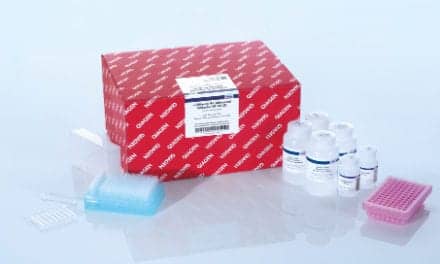Pangea Laboratory, Costa Mesa, Calif, has announced the licensing of a new urine-based laboratory-developed test for the detection of bladder cancer.
Commercialized and sold under the name Bladder Care, the epigenetic test is noninvasive and cost-effective. Urine samples for the Bladder Care test can be collected comfortably at home or at the doctor’s office and mailed to Pangea for analysis.
Bladder cancer ranks as the fifth most common malignancy in the United States.1 The gold standard technique to diagnose bladder cancer is cystoscopy, which allows the doctor to directly inspect the bladder for the presence of a tumor. Cystoscopy is routinely used to detect bladder cancer in symptomatic patients and for the long-term monitoring of patients with a history of bladder cancer.
Because of its invasiveness and cost, however, cystoscopy is not used to screen population with increased risk of bladder cancer, such as smokers and specific categories of workers. A simple, noninvasive, and cost-effective test such as Bladder Care can meet the needs of such higher-risk populations.
Pangea Laboratory conducted a preclinical collaborative study with Zymo Research, in which 182 urine samples were analyzed using Bladder Care. The cohort consisted of 97 urine specimens collected from bladder cancer patients and 85 healthy control samples.
The study showed that Bladder Care has 93.8% sensitivity, 85.9% specificity, 88.4% positive predictive value, and 92.4% negative predictive value. The same study also revealed that Bladder Care has a very high sensitivity not only for high-grade bladder cancer, but also for low-grade cases (88.2% and 97.4% sensitivity for bladder tumors with a Gleason score of G1 and G2, respectively) making Bladder Care a powerful tool for early bladder cancer detection. In addition, Bladder Care has the potential to significantly improve the monitoring of bladder cancer for at-risk categories of populations that are not usually included in screening programs.
“In addition to its superior sensitivity, Bladder Care is completely noninvasive,” says Paolo Piatti, PhD, project manager at Pangea. “This advantage, in combination with the simple at-home sample collection, makes this test extremely patient-friendly and allows physicians to streamline the patients’ monitoring process.”
“The Bladder Care test allows the precise measurement of the methylation level of bladder cancer-specific biomarkers,” says Larry Jia, MD, founder and director of Zymo Research. “The test is extremely simple, rapid, and cost-effective.”
For further information, visit Pangea Laboratory.
Reference
- Siegel R, Ward E, Brawley O, Jemal A. Cancer statistics, 2011: the impact of eliminating socioeconomic and racial disparities on premature cancer deaths. CA Cancer J Clin. 2011;61(4):212–236; doi: 10.3322/caac.20121.



